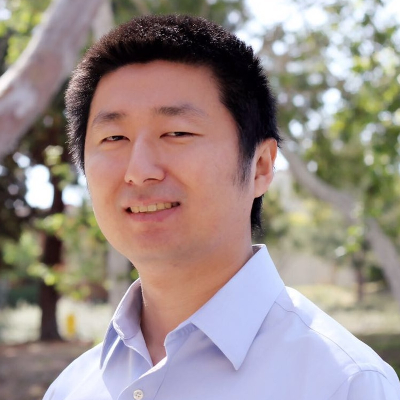EECS 289: Topics in Human-Computer Interaction
FALL 2021 (3 UNITS)
This course introduces students to empirical research methods, statistical procedures, theories and concepts, and current, promising interdisciplinary research topics in Human-Computer Interaction (HCI) through lectures, guest lectures, and paper discussion.
| Monday, Wednesday | 04:30 — 05:45 PM PST | CLSSRM 270 |
Class Format: This course will start with lectures on empirical research methods, statistical procedures, and theories and concepts in Human-Computer Interaction. It will then invite interdisciplinary researchers to give guest lectures on their areas of expertise. Discussions on guest lectures and relevant papers will be held in the subsequent classes.
Guest Lecture Format: Each guest lecturer will introduce her/his/their research area in the first 20 minutes, present her/his/their research in the area in the next 30 minutes, then conclude the lecture with a 15 to 20 minutes Q&A session. Guest lectures will be either in-person or via teleconference. However, students are expected to attend all classes in-person. Guest lecturers will provide reading material ahead of their lectures (will be posted here). Some lectures will be recorded and posted on CatCourses.
Course Policies
- Attendance is mandatory,
- Participation in Q&A sessions and follow-up discussions is mandatory,
- Students must pick an area from the topics covered in the class to conduct a literature review (at least 5 pages in this Overleaf template, excluding references), late submission of the literature review is prohibited.
| Attendance | 10% |
| Q&A Participation | 20% |
| Discussion | 20% |
| Literature Review | 50% |
Textbook

| 08/25/2021 — 09/03/2021 | Fall Semester Instruction Delayed (Message from the Executive Vice Chancellor and Provost) |
| 09/06/2021, Monday | Labor Day Holiday |
| 09/08/2021, Wednesday |
Research Methods:
|
| 09/13/2021, Monday |
Hypothesis Testing:
|
| 09/15/2021, Wednesday |
Theories and Laws in HCI:
|
|
09/20/2021, Monday
Guest Lecture on Gender Identity, Equity, and Inclusivity |
Foad Hamidi, Assistant Professor, Information Systems, University of Maryland, Baltimore Cty

Foad Hamidi is an Assistant Professor in Information Systems at the University of Maryland, Baltimore County (UMBC). His research interests include Human-Computer Interaction (HCI), Participatory Design, Living Media Interfaces and DIY Assistive Technology. He conducts interdisciplinary community-engaged research and collaborates regularly with diverse community partners. He has a Ph.D. in Computer Science from York University, Toronto.
|
| 09/22/2021, Wednesday |
Discussion on Gender Identity, Equity, and Inclusivity
|
|
09/27/2021, Monday
Guest Lecture on Fabrication |
Haisen Zhao, Postdoc, Computer Science & Engineering, University of Washington

Haisen Zhao is a postdoc at IST Austria, working with Prof. Bernd Bickel. He completed his Ph.D. from Shandong University (2018) under the supervision of Prof. Baoquan Chen. He has been a postdoctoral researcher at the University of Washington from 2019 to 2021. His research interest lies at the design optimization, geometric processing and its application for digital fabrication. He has published 10+ papers on the top conferences or journals, such as ACM SIGGRAPH/Asia, ACM TOG, IEEE TVCG and IROS.
|
| 09/29/2021, Wednesday |
Discussion on Fabrication
|
|
10/04/2021, Monday
Guest Lecture on Social Computing |
Yubo Kou, Assistant Professor, College of Information Sciences and Technology, Penn State

Yubo Kou is an assistant professor from the College of Information Sciences and Technology at the Penn State University. He received a Ph.D. degree in informatics from UC Irvine in 2016. His research lies at the intersection of HCI, CSCW, and social computing. His most recent interests are online toxic behaviors and moderation-related issues, in contexts of online gaming and social media. As an avid gamer, he also has sustained interest in various video game-related topics such as teamwork and emotion regulation in competitive gaming.
|
| 10/06/2021, Wednesday |
Discussion on Social Computing
|
|
10/11/2021, Monday
Guest Lecture on Olfactory Interfaces |
Judith Amores, Research Fellow, MGH/Harvard Medical School & MIT Media Lab

Judith is a Research Fellow at the MGH/Harvard Medical School, department of psychiatry, and a Research Affiliate at the MIT Media Lab, where she did her PhD and master's and helped run VR/ARatMIT as a co-president. She holds a multimedia engineering degree from LaSalle University, Barcelona, Spain, and has a computer science background and design focused on UX, UI, and filming. She previously interned as a Human-Computer Interaction (HCI) researcher at Microsoft Research and at R&D at URL Barcelona, developing Augmented and Virtual Reality experiences and at the Google Creative Lab as a Creative Technologist. Her grants, awards, and publications include over 30 peer-reviewed research papers, two patents, Best Paper and Demo Awards at premier venues in human-computer interaction and bioengineering, as well as the Scent Innovator Award by the Cosmetic Executive Women (CEW) and IFF (International Flavors and Fragrances). Facebook Graduate Fellowship, INK fellow, LEGO Foundation-sponsored research and finalist of the Fast Company's Innovation by Design Awards and the 2021 Edison Awards.
|
| 10/13/2021, Wednesday |
Discussion on Olfactory Interfaces
|
|
10/18/2021, Monday
Guest Lecture on Animal-Computer Interaction |
Clara Mancini, Professor, Computing and Communications, The Open University, U.K.

Clara Mancini is Professor of Animal-Computer Interaction at The Open University's School of Computing and Communications, where she founded and heads the Animal-Computer Interaction (ACI) Laboratory. Clara has led and supervised a range of ACI projects, including ubiquitous and ambient interfaces for mobility assistance and medical detection dogs, interactive enrichment for captive elephants, and wearable animal biotelemetry. Clara is interested in the design, methodological and ethical challenges and opportunities presented by ACI, and has published and lectured extensively on related topics. She is committed to demonstrating ACI's potential to contribute to animal and human wellbeing, social inclusion, interspecies cooperation and environmental restoration.
|
| 10/20/2021, Wednesday |
Discussion on Animal-Computer Interaction
|
|
10/25/2021, Monday
Guest Lecture on Games and Play |
Sunjun Kim, Assistant Professor, Information & Communication Eng, DGIST, South Korea

Sunjun Kim is an assistant professor in DGIST, South Korea, leading Smart Input Device Lab. He worked as a postdoc researcher in the User Interfaces Group at Aalto University, Finland, from 2017 to 2020. He obtained his Ph.D. in Computer Science from KAIST in Feb 2017. His expertise is specilized in performance optimization of input device design, text entry system and study, touch screen interaction, and haptic. Especially, his recent researches focus on the parametric performance optimization of legacy input devices on the edge, such as gaming keyboards and gaming mouse, which are still the primary input devices.
|
| 10/27/2021, Wednesday |
Discussion on Games and Play
|
|
11/01/2021, Monday
Guest Lecture on Text-Based Communication for Post-PC Computing |
Xiaojun Bi, Assistant Professor, Computer Science, Stony Brook University, NY

Xiaojun Bi is an Assistant Professor in the Department of Computer Science at Stony Brook University. Prior to joining Stony Brook, he was a Research Scientist at Google Inc. in Mountain View, California. Xiaojun Bi's research lies in the general area of Human Computer Interaction (HCI), with a primary focus on computational interaction and theoretical issues of HCI. Xiaojun Bi is a two-time Google Faculty Research Award winner. He has authored over 40 publications in the premier HCI publication venues such as CHI, UIST, and Human Computer Interaction Journal, and over 20 US patents. His research papers have received 8 awards (Best paper or Honorable mention) at CHI and UIST. His paper studying the speed-accuracy tradeoff of finger touch input won the Google 2013 Influential Paper Award. Xiaojun Bi earned his Ph.D. from the Department of Computer Science at the University of Toronto. He received his Master's and Bachelor's degrees from Tsinghua University.
|
| 11/03/2021, Wednesday |
Discussion on Text-Based Communication for Post-PC Computing
|
|
11/08/2021, Monday
Guest Lecture on Distributed Cognition and Activity Theory |
Ahmed Kharrufa, Senior Lecturer, Computing, Newcastle University, U.K.

Dr. Kharrufa is a senior lecturer in human-computer interaction at Open Lab, Newcastle University. He leads the educational technology research focusing on the design, development, implementation, and evaluation of processes and technologies in support of learning, school-community engagement, and cultural and language learning. His research in interaction design ranges from improving people's experiences of interacting with digital surfaces, spaces and the IoTs to rethinking the design, and the appropriation, of online platforms and services. Dr. Kharrufa is the Degree Programme Director for the Software Engineering Degree Apprenticeship, and the module leader for three HCI related modules for undergraduate and postgraduate degrees.
|
| 11/10/2021, Wednesday |
Discussion on Distributed Cognition and Activity Theory
|
|
11/15/2021, Monday
Guest Lecture on Spatial Memory Interfaces |
Md. Sami Uddin, Postdoc, School of Computer Science, McGill University, Canada

Md. Sami Uddin is a Postdoctoral Researcher in the School of Computer Science at McGill University, Canada. He completed his Master's and Ph.D. in Computer Science from the University of Saskatchewan, Canada under the supervision of Dr. Carl Gutwin. Dr. Uddin's research falls under the broad category of Human-Computer Interaction (HCI); primarily, he investigates people's physical and cognitive abilities to design interaction techniques that help users become experts quickly. He explored bimanual interactions and the use of 'artificial landmarks' in computer interfaces to enable rapid user expertise development. His works were published and awarded in leading HCI venues, including CHI, ISS, SUI, MobileHCI, and GI. He also served as a Lecturer of Computer Science and Engineering at the Ahsanullah University of Science and Technology, Bangladesh.
|
| 11/17/2021, Wednesday |
Discussion on Spatial Memory Interfaces
|
|
11/22/2021, Monday
Guest Lecture on Virtual and Mixed Reality |
Robert J. Teather, Associate Professor, Information Technology, Carleton University, Canada

Robert J. Teather is an associate professor in the School of Information Technology at Carleton University. Dr. Teather’s research specialization is primarily in 3D user interfaces for virtual reality. His PhD work focused on developing standardized methods for the empirical comparison of input devices for 3D interaction - primarily in order to compare mouse and 3D tracker-based input. To this end, Dr. Teather has established himself as an expert in comparing drastically different input devices and interaction techniques for common fundamental interaction tasks in VR (e.g., target selection), across varying system configurations (e.g., display properties such as stereo graphics, or system properties such as latency).
|
| 11/24/2021, Wednesday | Non-Instructional Day, Literature Review Due |
| 11/29/2021, Monday |
Discussion on Virtual and Mixed Reality
|
| 12/01/2021, Wednesday | General Discussion and Reflection on the Guest Lectures |
| 12/06/2021 — 12/08/2021 | No Class |
Academic Dishonesty Statement
- Each student in this course is expected to abide by the University of California, Merced's Academic Honesty Policy. Any work submitted by a student in this course for academic credit will be the student's own work.
- Students are encouraged to study together and to discuss information and concepts covered in lecture and the sections with other students. They may give "consulting" help to or receive "consulting" help from such students. However, this permissible cooperation should never involve one student having possession of a copy of all or part of work done by someone else, in the form of an email, an email attachment file, a diskette, or a hard copy. Should copying occur, both the student who copied work from another student and the student who gave material to be copied will both automatically receive a zero for the assignment. Penalty for violation of this Policy can also be extended to include failure of the course and University disciplinary action.
- During examinations, students must do their own work. Talking or discussion is not permitted in the examinations, nor comparing papers, coping from others, or collaboration in any way. Any collaborative behavior during the examinations will result in failure of the exam and may lead to failure of the course and University disciplinary action.
Student Accessibility Services
University of California, Merced is committed to creating learning environments that are accessible to all. If you anticipate or experience physical or academic barriers based on a disability, please feel welcome to contact me privately so we can discuss options. In addition, please contact Student Accessibility Services (SAS) at (209) 228-6996 or disabilityservices@ucmerced.edu as soon as possible to explore reasonable accommodations. All accommodations must have prior approval from Student Accessibility Services on the basis of appropriate documentation.
If you anticipate or experience barriers due to pregnancy, temporary medical condition, or injury, please feel welcome to contact me so we can discuss options. You are encouraged to contact the Dean of Students for support and resources at (209) 228-3633 or https://studentaffairs.ucmerced.edu/dean-students.